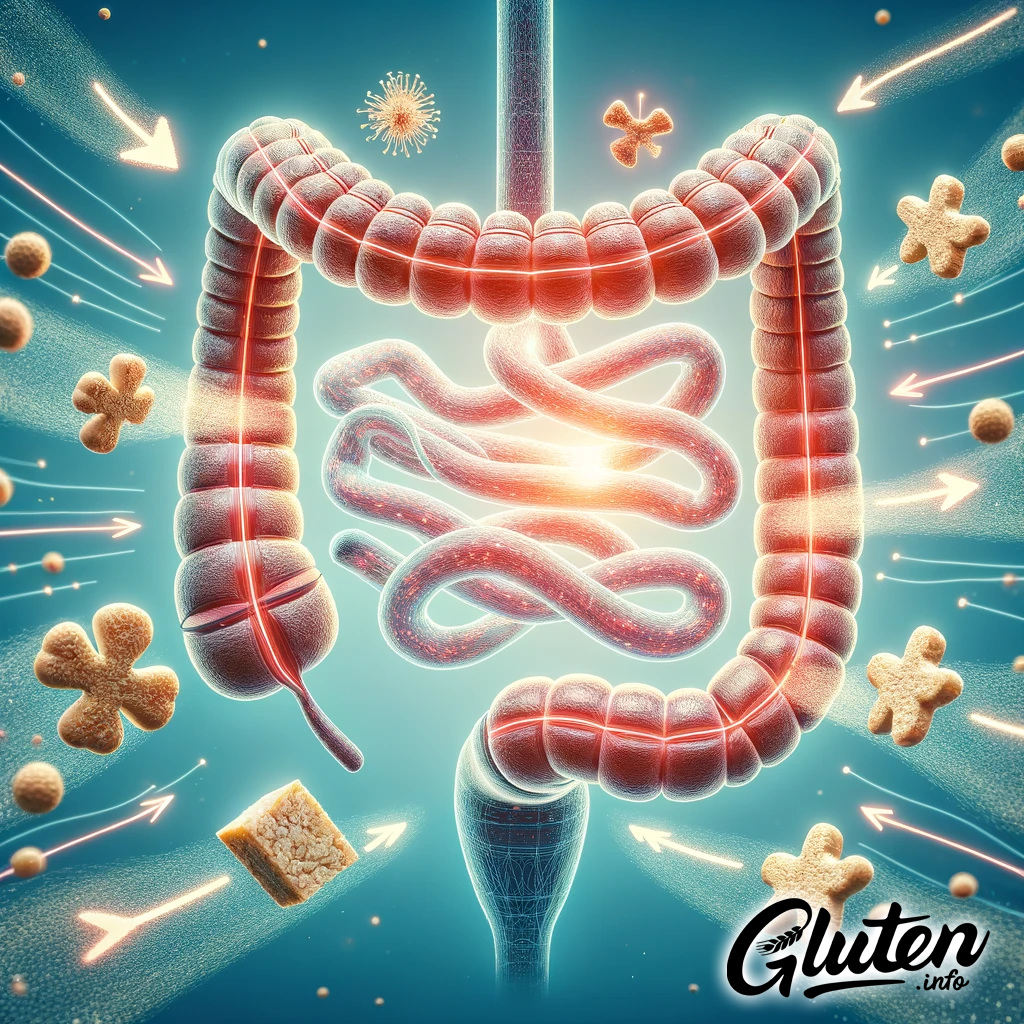Gluten — the structural protein found within wheat, barley, rye and certain oats — is often cited by people as being responsible for a range of symptoms, including digestive problems. While coeliac disease and other recognised gluten-related disorders mean certain individuals will have major issues after consuming gluten, the protein is also generally regarded as being difficult to digest, even in people who do not have a sensitivity, intolerance or disorder.
In this blog post, we will take a closer look at how gluten is digested by the human body, why it is considered to be difficult to digest and how long it takes for gluten to leave your system. Understanding this total transit time can be especially important for people with gluten-related disorders who accidentally consume food containing gluten.
Contents
Why is Gluten So Difficult to Digest?
Whether diagnosed with a gluten-related disorder or not, many people report having difficulty digesting gluten.
The reasons for this are summarised in a 2020 study, published in the International Journal of Molecular Sciences. Essentially, during digestion, enzymes from the pancreas convert proteins into free amino acids. These acids are then absorbed by the intestines. Yet, gluten proteins cannot be fully broken down by these enzymes.
In most people, this is not a problem. Many foods are not fully broken down during digestion, but the body still passes them. However, in people suffering from coeliac disease, gluten sensitivity, or other similar issues, this triggers an immune response. As Mayo Clinic outlines, over time, this can damage the lining of your intestines.
How Long Does Gluten Stay in the Body?
In a post published by Livestrong, Dr. Elena A. Ivanina from Lenox Hill Hospital in New York breaks down the typical transit time for a person who does not have coeliac disease or a gluten sensitivity. Generally, gluten will spend up to four hours in the stomach, around six hours in the small intestine and then anywhere up to 59 hours in the colon.
In a typical adult, the total transit time from the point of consumption to the point of the gluten being passed out of the body is somewhere around two or three days, with four days being less common, but still possible.
However, if you have coeliac disease, a wheat allergy, or a gluten sensitivity, the process could take longer. This is primarily because people in this category often experience issues absorbing nutrients from food. The delayed transit time can also be worsened by constipation, which is quite common in coeliac sufferers.
The Healing Process After Consumption
Removing gluten from your diet permanently is the only way to effectively treat coeliac disease and non-coeliac gluten sensitivity. Whether you are switching to a gluten-free diet for the first time, or are already on a gluten-free diet but have accidentally consumed some gluten, it is worth knowing a little about the healing process.
The good news is, as an article for Johns Hopkins Medicine explains, most people find that their symptoms improve after just a few days of being gluten-free. However, your small intestine will take longer to fully heal. In a typical adult, this could take around three to six months in total. The process may take longer than six months in older people.
According to NCA dietician Melinda Dennis, the cells lining your intestines regenerate every 72 hours, when not exposed to gluten. As a result, any accidental gluten consumption will not cause permanent damage to your intestines.
Final Thoughts
While many people are able to safely consume gluten, a percentage of the population is unable to do so, owing to coeliac disease, a gluten sensitivity, a wheat allergy, or another related disorder. It should be noted that these conditions are increasing in prevalence and are also under-diagnosed.
Meanwhile, many people report having difficulty digesting gluten, even if they do not have a recognised disorder. This may be linked to the fact that gluten proteins are not fully broken down by the body during digestion.
If you do consume gluten, it will typically stay in your system for two or three days. However, coeliac disease and other gluten-related disorders could prolong this slightly. The good news is, once gluten exits your body, you should see an improvement in symptoms within a few days and your intestines can then begin the healing process.


